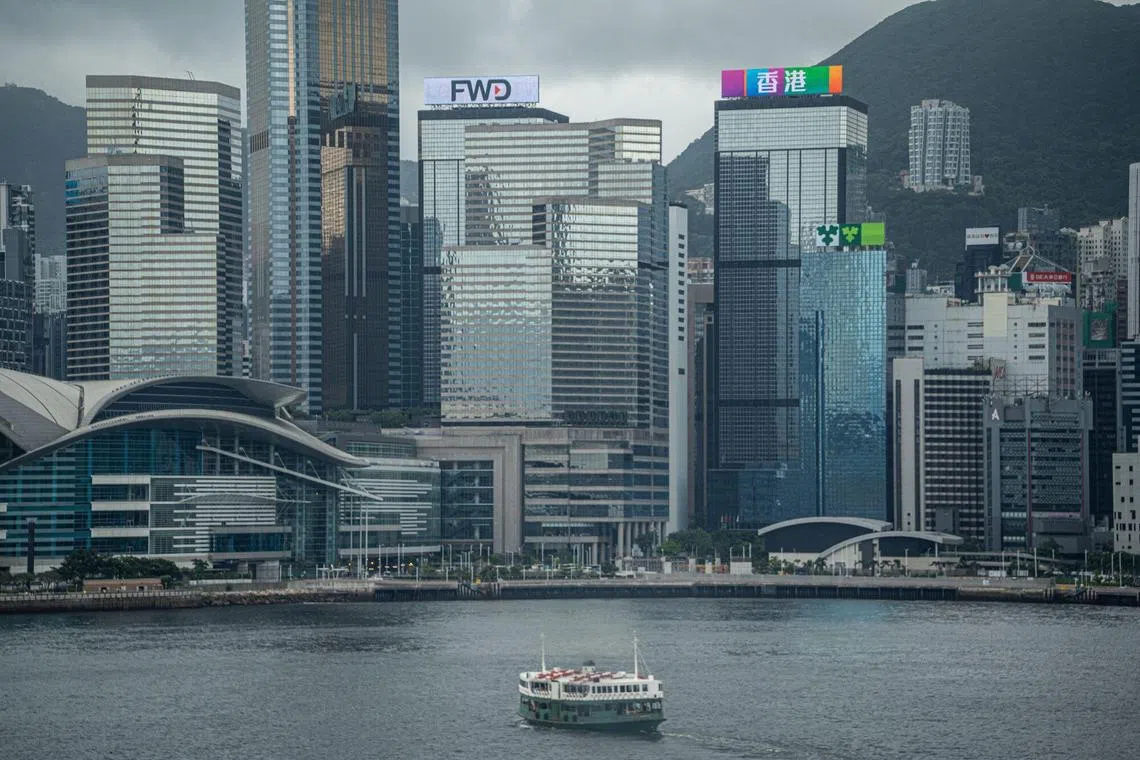Hong Kong’s legal exodus leaves law students with few places to go
Sign up now: Get ST's newsletters delivered to your inbox

At least 16 law firms have left or shut down since 2020 after steady growth in the previous few years.
PHOTO: BLOOMBERG
Follow topic:
Hong Kong - When Ms Katie Lam was deciding what to study back in 2018, she thought that a law degree would open the most doors in a future career. She was overjoyed to be accepted into her chosen subject at the Chinese University of Hong Kong.
Almost six years on, the outlook in the city has soured, with top-tier firms closing, foreign lawyers leaving and, according to recruiters, fewer trainees being retained.
While Ms Lam, 23, managed to secure work as a paralegal, more graduates appear to be dropping out of the profession altogether.
Some industry leaders say the downturn is part of a normal economic cycle and the fundamentals remain strong.
But there are also concerns that US-China tensions and the city’s national security legislation have undermined faith in the rule of law and are further clouding the future.
The legal industry in Hong Kong is growing at the slowest pace in a decade. At the Law Society, which solicitors are required to join, membership grew by only 90 in 2023, down 83 per cent from an increase of 532 members in 2020.
At least 16 law firms have left or shut down since 2020 after steady growth in the previous few years, including Philadelphia-founded Dechert and Chicago-based Winston & Strawn.
DLA Piper, one of the largest law firms in the world, has cut its office space, while Mayer Brown was preparing to split off its Hong Kong operation, people familiar with the matter said earlier in 2024.
“Hong Kong’s status as a legal hub has changed significantly,” said Dr Richard Cullen, an adjunct professor in the Faculty of Law at the University of Hong Kong.
“It is caught in the crosshairs of an aggressive campaign by the United States and other Western powers trying to contain China, with the national security law becoming a focus.”
The Hong Kong government said in June that there is no truth that the city’s courts are under any political pressure from Chinese central authorities or the hub’s government in the adjudication of national security cases.
“Hong Kong’s ability to remain as an international financial centre is largely attributed to its stable environment with strong rule of law consisting of a robust legal system and a pool of diversified legal talents,” the Department of Justice said in an e-mailed response to questions on Aug 22.
The national security laws “will not affect normal business operations and worldwide exchanges of local institutions, organisations and individuals”.
That said, foreign lawyers have left the city, according to data from the Law Society. Only 1,476 were registered in 2023, down 13 per cent from a peak of 1,688 in 2019.
Meanwhile, the number of junior lawyers who are being taken on as associates after their two-year training period is declining.
“At the junior level, there has been roughly a 25-30 per cent contraction in retention rates,” said Mr Johnny Hui, a Hong Kong-based legal and compliance manager at recruitment firm Robert Walters.
“To bump up these rates, some firms retain their trainees on six-month or rolling contracts, defer their commencement dates, or continue paying associates at far lower trainee rates.”
In-house roles have also been falling since 2021, partly due to some companies moving their Asian hubs to Singapore from Hong Kong, according to a report by Lewis Sanders, a specialist legal and compliance recruitment consultancy.
Part of the reason some firms have withdrawn is due to concern they will be forced to divulge client information to the Hong Kong government after implementation of the national security law, according to a partner at a UK-based law firm who asked not to be named due to the sensitive subject matter.
The Financial Times reported in February that US firm Latham & Watkins was cutting off default access to its international databases for its Hong Kong-based lawyers amid growing concern of China’s closer control of the territory.
Moreover, the decision by several overseas judges to step down from the former British colony’s top court has added to worries over the future of the rule of law.
Nevertheless, industry associations say the recent decline is due to poor economic conditions rather than political fears.
“You can’t have non-stop expansion,” said Mr Victor Dawes, chairman of the Hong Kong Bar Association, adding the local decline in deal volume was part of a worldwide trend. “Dispute resolution in Hong Kong, including liquidation, restructuring and insolvency, has actually increased over the last few years.”
Mr Dawes said he is confident that Hong Kong will retain its legal hub status, given it is a common law jurisdiction.
Ms Joanne Lau, secretary-general of the Hong Kong International Arbitration Centre, said arbitration and mediation in Hong Kong continue to grow.
“If you look at our fundamentals – we continue to have sophisticated laws, a strong judiciary, experienced arbitral institutions, and a community of vibrant talent,” she said. BLOOMBERG

